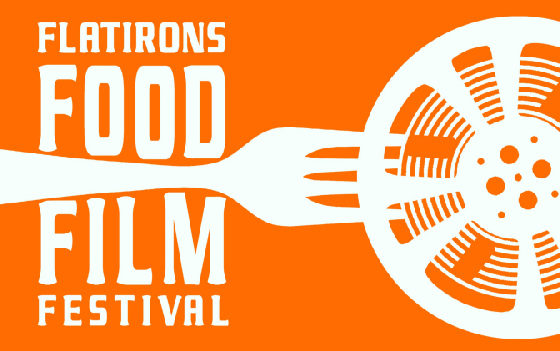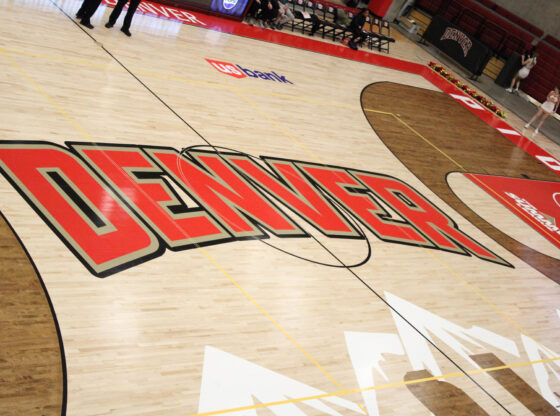It is almost time for food lovers to feast their eyes on this year’s Flatirons Food Film Festival, as it commences on Jan. 28 and runs through Feb. 5. While the cinema presentation cannot be held in Boulder’s Canyon Theater due to COVID-19 restrictions, festival founder Julia Joun is determined to keep the tradition alive. The festivities are set to commence virtually to educate and advance discourse surrounding the nature of the food industry through the lens of diversity, sustainability and history.
This food-centric version of Sundance requires Joun to scour films endlessly until she can find a collection that leaves viewers with new perspectives on what we consume, how we consume and what it means to consume. However, Joun is not alone in her adventures. Her advisory board team is composed of Boulder kitchen kings and film aficionados who provide multiple perspectives as to which movies advance the industry they care so much about.
Its members include the leading farmer of Black Cat Farm and chef of the associated restaurant, Erik Skokan. He is a leading purveyor for the Boulder food scene and an innovator in his own right. He integrates practices similar to that of renowned chef Dan Barber by demonstrating the simplicity of what nature offers. Kelly Whitaker, chef and co-owner of Basta, amplifies the team with his expertise from developing one of Colorado’s most esteemed kitchens. His accolades have made him a local star, 5280’s Best Chef, Chef of the Year by Eater and a James Beard Nominee.
A bowl of movie theater popcorn must come from the microwave as all showings will take place at home this year. The virtual setting is a drastic change of scenery, but the content and richness of the films are set to captivate audiences regardless.
High prospects on the list of films in this year’s festival include “Gather,” a piece that shares three untold stories of Indigenous people reclaiming their ancient food and ingredients in order to rekindle the spirit of their people. From chefs and high school students, this film highlights the many avenues to understanding the vitality of Native American culture through food.
Another noteworthy film will be “Funke” which dives into the life of Ronnie Kahn, a woman who made it to the pinnacle of event management. At the top, she exposed food waste and environmental issues in the industry. She went on to create OzHarvest, a non-profit that redistributes surplus food to vulnerable communities in her home country of Australia.
“Sacred Cow” and “Meat the Future” offer insight into our ever-developing relationship with meat consumption. “Sacred Cow” calls into question the morality and wasteful nature of cultivating large production farms to suit the average meat eater’s desires. It makes a case for the benefits of going back to a thoughtful, humane way of raising animals. “Meat the Future” sees an alternate reality where breeding and raising aren’t required. They see meat being cultivated from test tubes rather than grazing fields.
Food is more than just nutrition, which is exemplified in “A Taste of the Sky.” The former chef of Noma and four-time winner of the World’s 50 Best Restaurants, Claus Meyer is on to his next project of fostering a better life for underprivileged Bovinian youth. He mentors them in the kitchen with the prospect of creating a new food epicenter. His restaurant and cooking academy, Gustu, is a multi-medium space that fosters culinary genius for diners and a gateway towards a better life for locals.
The full festival experience comes through in supplements to the films, which include speaker presentations, Q&A sessions and the option to order specialized dishes that correspond with viewings. Speakers range from Colorado’s industry greats to national and international food connoisseurs who are pushing new perceptions of today’s food and beverage market.
A movie is incomplete without popcorn or a box of candy, which is why The Inventing Room was called upon to bring the concession stand to viewers’ doorsteps. Their contribution to the festival comes from witty desserts like Milk Dud marshmallows and Sour Patch Pate De Fruit.
“Funke,” the film featuring Erik Funke’s revival of homemade pasta, can be enjoyed alongside dishes produced by local chefs with that addictive al dente bite. Sfoglina and Moon Raccoon Baking Co have partnered to meld the earthy wholeness of fresh vegetables with buds of campanelle pasta.
The carb-centric dish is complete with an airy focaccia bread that soaks up the leftover celery root cream. Pastacifico will offer the option of two beloved Italian pastas, a ruby pomodoro on rigatoni or a nutty brown butter and sage on garganelli.
With a wide variety of food-influenced topics to be touched upon, the Flatiron Food Film Festival is sure to examine where the food industry has been and the direction it’s destined to go. While food is at the core of this event, it intertwines ideas of family, environmental practices, life experience, community and social justice. Whether you are a food lover or not, the films projected are meant to be the basis for a conversation that may end up far beyond what we eat.
Movies can be watched live at their given time slots, as they would at a festival, or saved for a night of binging before Feb. 5. Once the movie begins rolling, viewers will have 72 hours to finish or watch as many times as possible. A single film costs $12, but their bundled options allow viewers to see multiple films at a discounted rate. Tickets are nonrefundable, but they are transferable.











